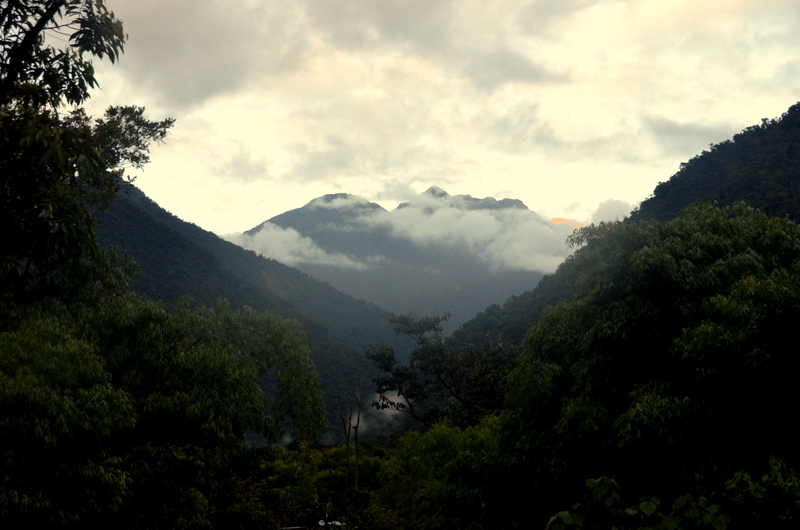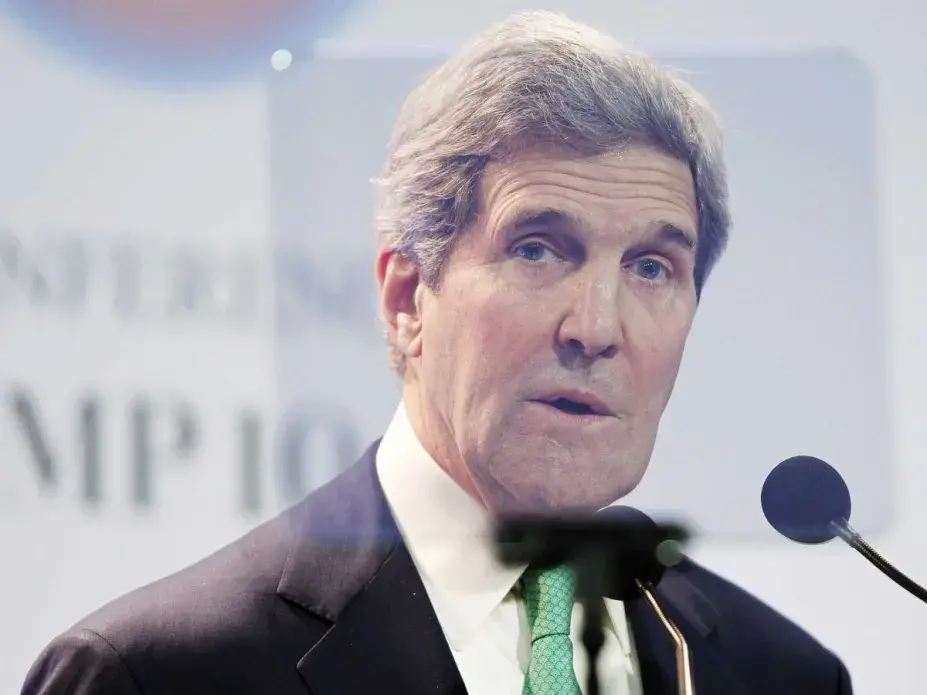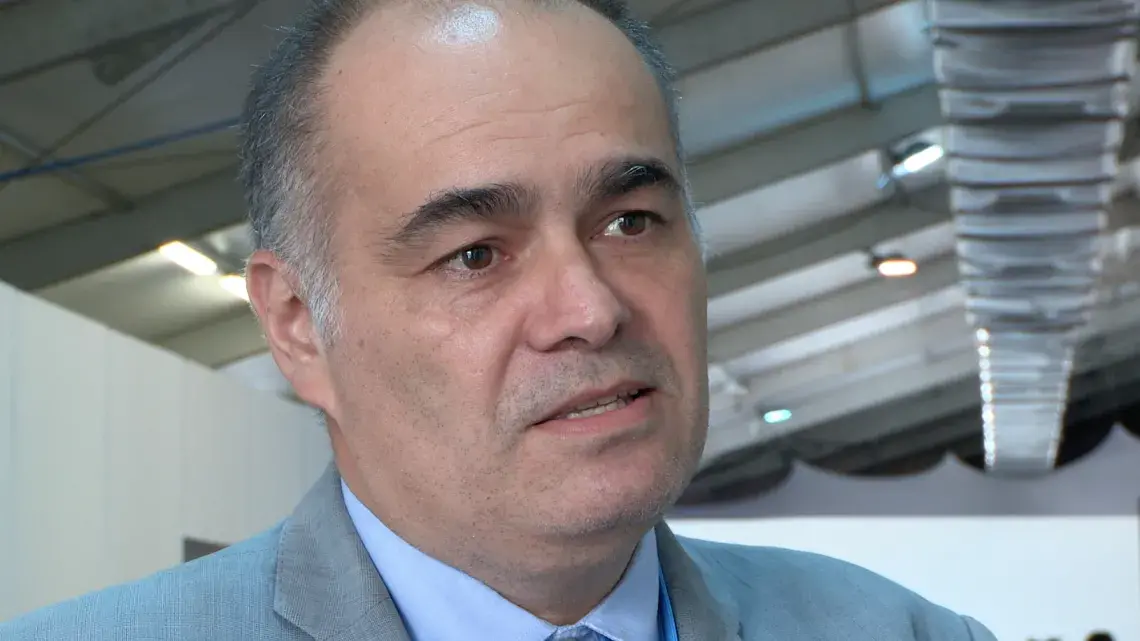One day after Republican House leaders signaled their intention to block President Obama's recent $3 billion pledge to the Green Climate Fund, Secretary of State John Kerry arrived at the UN climate summit here to laud the fund for reaching its preliminary goal while blasting skeptics in Congress for imperiling the planet with their denial of science.
"I understand we now have enough pledges from the international community to meet and exceed the initial Climate Green Fund target of $10 billion," Kerry said during a packed afternoon press conference with former Vice President Al Gore sitting in the front row.
He praised Australia, Belgium, Colombia, and Peru for contributing to the fund this week, adding, "All of this will help to ensure that this fund can succeed in helping the most overburdened nations of the world to do more to be able to respond to climate change."
Kerry then stressed in an impassioned 30-minute speech that the science of climate change is undeniable. He cited punishing weather around the globe, vanishing glaciers, rising sea levels, and record-high global temperatures in 13 of the last 14 years as evidence that the adverse effects of climate change are already upon us.
"Measured against the array of global threats that we face today – and there are many – terrorism, extremism, epidemics, poverty, nuclear proliferation – all challenges that know no borders – climate change absolutely ranks up there equal with all of them," said Kerry, who has attended every UN climate summit since they began 20 years ago.
He added: "I challenge anyone who has thought about the science or listened – actually listened carefully to national security experts tell us that these dangers are real – I challenge them to show us otherwise."
But among Republican leaders in Washington, the ominous environmental situation already besetting various parts of the United States is all about politics.
"President Obama's pledge to give unelected bureaucrats at the U.N. $3 billion for climate change initiatives is an unfortunate decision to not listen to voters in this most recent election cycle," said GOP Sen. Jame Inhofe of Oklahoma, an avowed climate denier.
In Lima, where government and environmental leaders from 196 countries have been meeting for nearly two weeks to draft a new climate accord to reduce greenhouse emissions, politics is merely a sideshow. Negotiators appear focused mostly on substantive ways to grapple with the impact of rising temperatures, like paying poor countries to adapt or protect themselves from the ravages of climate change caused by pollution from industrialized nations.
In an interview with Business Insider, Gabriel Quijandria Acosta, co-chair of the Green Climate Fund, said the fund is an important tool to enable developing countries "to transition to low carbon economies and build defenses against climate change."
"The key is to develop certain pilot interventions that will have to be scaled up later with more private money and with more public money," said Quijandria, who is also a top natural resources official with the Ministry of Environment for Peru. "To do the first step, the Green Climate Fund money will be essential."
Peru and Colombia became the first Latin American countries to contribute to the fund, pledging $6 million each this week. Quijandria said it won't be long until Peru requests support from the fund.
Ironically, Peru holds the fourth-largest store of tropical forests on earth yet leads South American countries in its rate of deforestation due to gold mining, fossil fuel extraction and slash-and-burn agriculture. But water comes first, not fighting deforestation.
"We have identified projects regarding water like building reservoirs in the highlands to capture rain water during the rainy season to use during the dry season," Quijandria said. "You know there is a serious issue of glacier retreat in the Andean area."
Peru is an oddly dichotomous country split by the Andes. It is arid and desert-like along its Pacific west coast and lush with Amazon rain forests along its eastern border with Colombia, Brazil and Bolivia.
Lima, a city of 9 million people, or roughly a third of the national population, has virtually no annual rainfall. It depends mostly on Andean glaciers for its water. That supply is dwindling as half of the volume of those glaciers have melted away in the last 30 years due to global warming.
Quijandria said, though, that Peru will be far from the front of the line in receiving support from the Green Climate Fund when money starts flowing late next year. The fund's board rank as top priorities African nations and island states susceptible to sea-level rises.
For example, the Maldives, a tiny archipelago of islands in the Indian Ocean, is building sea walls around its major population centers to stave off rising tides.
Quijandria laughed when asked if the Green Climate Fund's entire $10 billion wouldn't be exhausted by a Malives' request alone.
"When you put it against the need and the size of the challenge we have to face, $10 billion is not much," he said. "And it's just 10 percent of what we have to channel into the fund in five years, and in each year after that."
The Green Climate Fund is ambitious if nothing else. It aims to raise $100 billion by 2020 and that same amount every year thereafter. The goal, Quijandria said, is steep, and will be impossible to achieve without significant contributions from the private sector.
He said major funding from large corporations will be sought once strategies are established to determine the risk level associated with a proposal. Private money, he said, should support the least risky projects to encourage more donors.
Quijandria said that leaders of fossil fuel companies – coal, oil and natural gas – have not yet been asked for contributions. But they will be the first industries approached.
"They have to be a part of the solution," he said.










